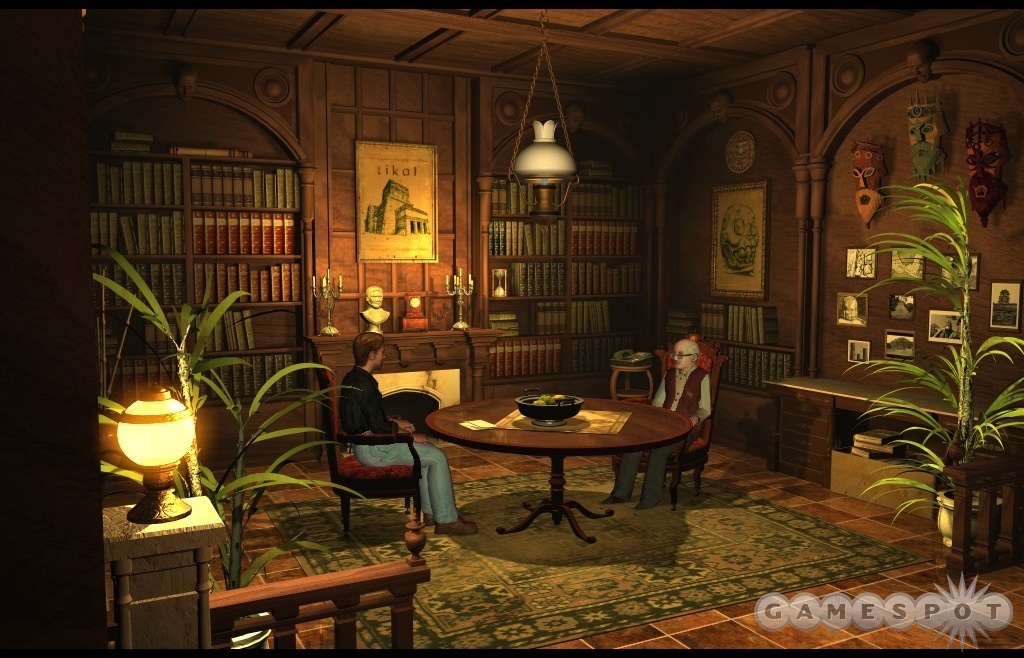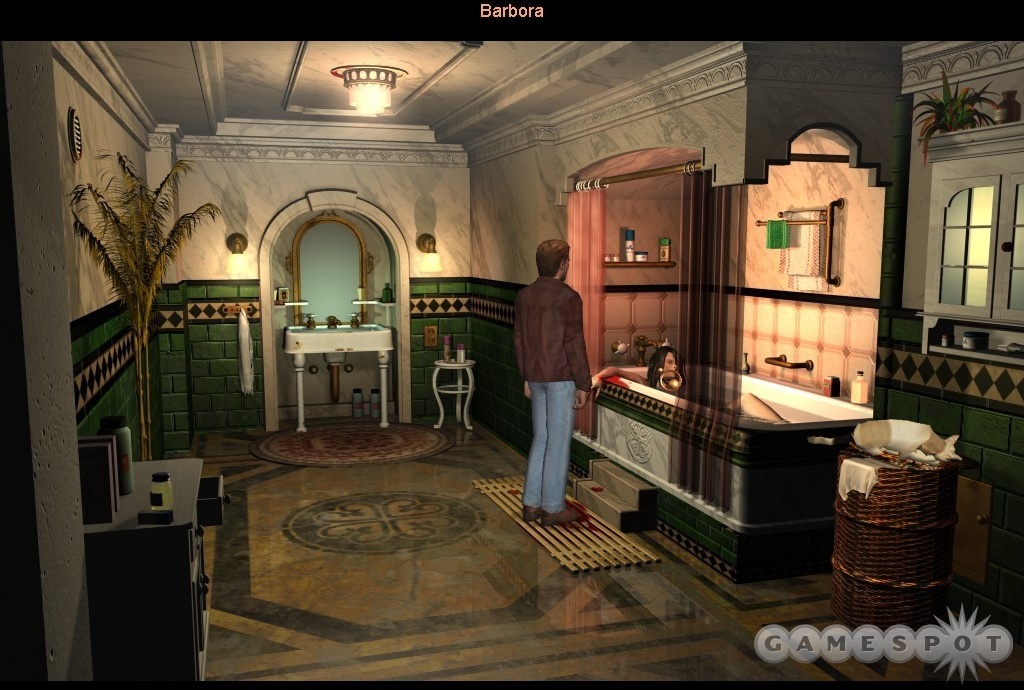According to the writings of apocalypse theorist and wannabe archaeologist Zecharia Sitchin, Nibiru is the name that the ancient Sumerians gave to our solar system's 12th planet. It is presently unknown to science because an elliptical orbit typically keeps it well beyond Pluto, although every 3,600 years it swings into our neck of the woods to wreak havoc on Earth. This deadly Planet X once smashed our planet in two, possibly killed off the dinosaurs, and caused Noah's flood. And don't look now, but according to the mystic Mayan calendar, it's set to return in 2012.

Crackpot science? Probably. But it's the really nifty type of crackpot science that lends itself to great pulp fiction like that presented in Nibiru: Age of Secrets, an adventure from Future Games in which you plumb the mysteries of this doomsday world. The game is certainly a lot more credible than Sitchin's ancient astronauts speculations, with a decided Da Vinci Code-styled plot that makes riddle-solving feel more like a high adventure than a dreary afternoon spent with a book of logic puzzles.
You play Martin Holan, an Eastern European student/archivist desperate to escape an office buried under "loads of old papers" as the game begins. He gets his wish--and maybe a bit more than he bargained for--when his professor uncle calls with the news that he wants him to investigate a recently discovered Nazi mine for evidence of the existence of Nibiru. According to the prof, Adolf and pals were desperately trying to find the 12th planet (and the presumably advanced technology of its alien citizens) at the close of the war as a way to save the Third Reich from destruction. Research seems to indicate that the Nazis were close to making a huge discovery when the war ended in 1945, and that the gathered evidence may have been secreted away in this mine.
With that, you're off to discover if Nibiru is myth or reality. And the search isn't the usual archaeological expedition. Mysterious foes without any qualms about murdering people for information are aware of the mine and its connection with the Nazi search for the missing planet, so there's a definite Indiana Jones vibe to the entire adventure. Although Holan is voiced terribly (and, oddly, without any sort of European accent, despite him apparently hailing from the Czech Republic) there is a lot of character to his exploits. He doesn't whip out a bullwhip or leap across any chasms, but he does pull off stunts like climbing down an apartment building in the dead of night; and he does run across more than one corpse in his travels.
Puzzles are all over the map. Virtually every type of brainteaser ever included in an adventure game is on display here. Most of them are fairly traditional in that you do a lot of talking and a lot of gathering objects that need to be combined to open a door, start up a generator, short out the lights in a building with a vase full of water, or feed a guard bad mushrooms so that his resulting diarrhea lets you sneak past him--that sort of thing. The only annoyance is that you can never skip steps. Picking up those mushrooms, for example, isn't even an option until the guard tells you that he's hungry. You often have to sit through two or three lengthy conversations (all the conversations in Nibiru are extremely long) before puzzle-solving items become available, which becomes tiresome in spots because many solutions can be figured out well before the game chooses to reveal them.
Still, all you need to solve most of the problems is some common sense and the patience to explore your surroundings. There are a couple of occasions, however, in which developer Future Games pushes the envelope of the absurdities for which adventure games have long gotten a lot of bad press. The more bizarre solutions aren't overly obscure, but it's still awfully hard to imagine any real-world situation where you would throw firecrackers at nearby birds to attract the attention of an apparently deaf old man, affix a stick of dynamite to a rat to blow open a sealed passageway, or access a fire escape by bribing an old woman with a hot dog (don't ask).
Most of the challenge in Nibiru comes from situations that arise from dealing with unhelpful people and sealed rooms, not from set-piece logic puzzles. There are a few of these in the later stages of the game, however, which all share an interesting Rubik's Cube theme. You need to arrange triangular shapes into a pattern, sort colored beads into a cross, and slide panels into various positions in order to open doors. None of these puzzles are particularly arduous aside from the final one, which is to be expected, because it serves as a climax to the entire game. All can be solved with a reasonable amount of trial and error, so the frustration factor is low even if you're not a fan of these sorts of riddles.

Adding to the adventurous ambience is some impressive production values. Nibiru was first released all the way back in 1998 as the Czech-only Posel Bohu, but it has been so completely overhauled that you would never know it. Most scenes look great, with a tremendous amount of detail. Some of the scenes in Prague and Paris feature such incredible detail that they wouldn't look out of place on picture postcards. The 3D animations aren't as stunning. Models are somewhat blurry, especially in the facial features department, and they move awkwardly. Holan lumbers through his quest so ramrod-straight that he might as well be auditioning for a role as a lamppost.
Audio quality is also here and there. The musical score is so understated that it's barely there, and the voice acting is absolutely horrible, with some characters speaking with laughably fake European accents (including a Jewish one that sounds like Mel Brooks doing his familiar riff on an elderly rabbi) and others speaking with no inflections at all. Only a few people provided the voice samples for the entire game, so characters seem to be having conversations with themselves at times. Atmospheric sound effects are rich and lively, though. Sound conveys a feeling of place, whether you're listening to the crickets on a nighttime street in Prague or hearing the rush of water flowing under the bridge beneath your feet in the German countryside.
Essentially, Nibiru is a stereotypical classic adventure. Future Games has done this one up in the traditional style popularized way back when by the likes of Sierra and LucasArts, so if you're a fan of this sort of old-school adventuring and don't demand that game designers reinvent the wheel, you can't go wrong here.